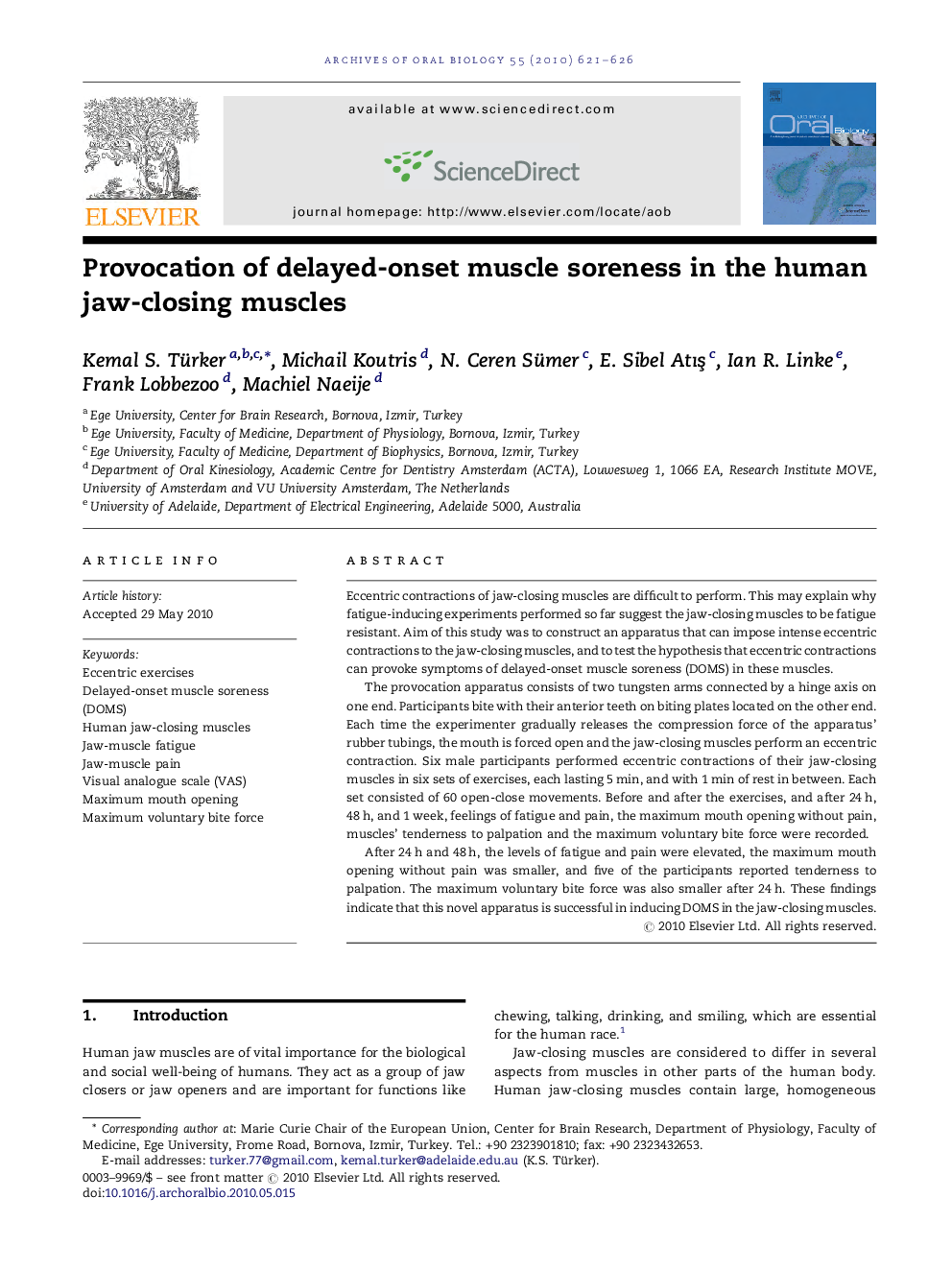| Article ID | Journal | Published Year | Pages | File Type |
|---|---|---|---|---|
| 3121104 | Archives of Oral Biology | 2010 | 6 Pages |
Eccentric contractions of jaw-closing muscles are difficult to perform. This may explain why fatigue-inducing experiments performed so far suggest the jaw-closing muscles to be fatigue resistant. Aim of this study was to construct an apparatus that can impose intense eccentric contractions to the jaw-closing muscles, and to test the hypothesis that eccentric contractions can provoke symptoms of delayed-onset muscle soreness (DOMS) in these muscles.The provocation apparatus consists of two tungsten arms connected by a hinge axis on one end. Participants bite with their anterior teeth on biting plates located on the other end. Each time the experimenter gradually releases the compression force of the apparatus’ rubber tubings, the mouth is forced open and the jaw-closing muscles perform an eccentric contraction. Six male participants performed eccentric contractions of their jaw-closing muscles in six sets of exercises, each lasting 5 min, and with 1 min of rest in between. Each set consisted of 60 open-close movements. Before and after the exercises, and after 24 h, 48 h, and 1 week, feelings of fatigue and pain, the maximum mouth opening without pain, muscles’ tenderness to palpation and the maximum voluntary bite force were recorded.After 24 h and 48 h, the levels of fatigue and pain were elevated, the maximum mouth opening without pain was smaller, and five of the participants reported tenderness to palpation. The maximum voluntary bite force was also smaller after 24 h. These findings indicate that this novel apparatus is successful in inducing DOMS in the jaw-closing muscles.
